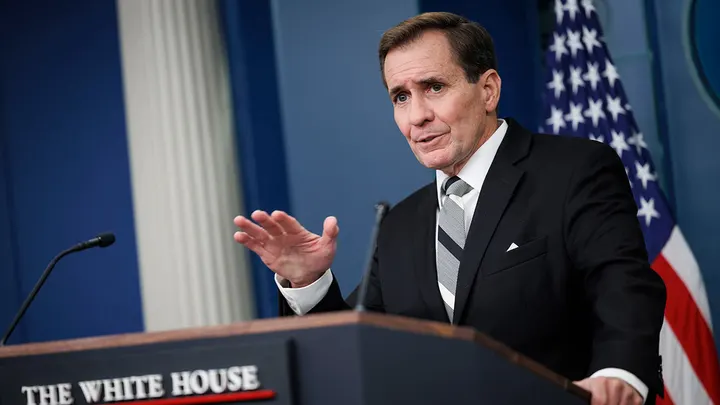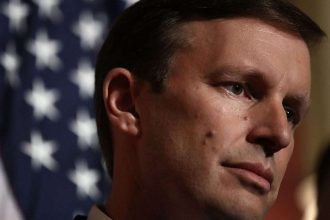Kirby jokingly predicted that Putin’s re-election campaign, largely regarded as an undemocratic gesture disconnected from actual public opinion, would be a “humdinger.”
While addressing with the press aboard Air Force One, National Security Council Spokesman John Kirby made fun of the forthcoming Russian presidential election.
Kirby was approached by the press to comment on Russian President Vladimir Putin’s announcement that he will run for re-election.
“Well, that’s going to be one humdinger of a horse race, isn’t it?” Kirby cracked a joke.
“That’s all I’ve got to say on that,” he added.
Putin, 71, revealed his intention to compete for re-election in March at a Kremlin award event in which war veterans and others reportedly begged him to do so.
With a solid grip on power, Putin is generally anticipated to win another six-year term, however a revision in the country’s constitution will allow him to run again in 2030, perhaps extending his reign to 2036. In the 2018 election, he received 76% of the vote.
“He didn’t believe NATO could remain united,” he continued. He didn’t think the United States could hold out.”
Last week, imprisoned opposition leader Alexei Navalny urged his supporters to vote for anyone other than Putin.
“Putin views this election as a referendum on approval of his actions,” Navalny stated in an online post. “A referendum on war approval.” Let us disrupt his preparations and make it so that no one is interested in the manipulated outcome on March 17, but that everyone in Russia saw and understood: the will of the majority is that Putin must depart.”
Kirby acknowledged the United States’ diminishing financial support for Ukraine during a White House news conference on Friday.
When asked about reports that Putin’s autocracy is celebrating Republican resistance to continued funding for the fight, Kirby claimed the failure of Western powers to maintain Ukraine’s defense was assisting the dictator.
“It would be a great gift to Vladimir Putin if we walked away from Ukraine.” He’s hoping for it. “He’s been betting on that kind of development since the beginning of this war, because he didn’t believe the West could remain united,” he said.














